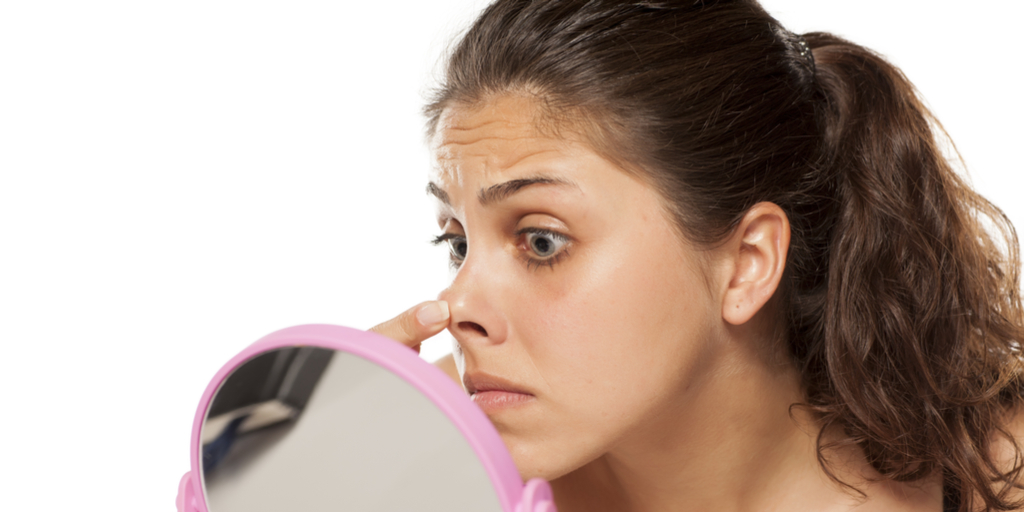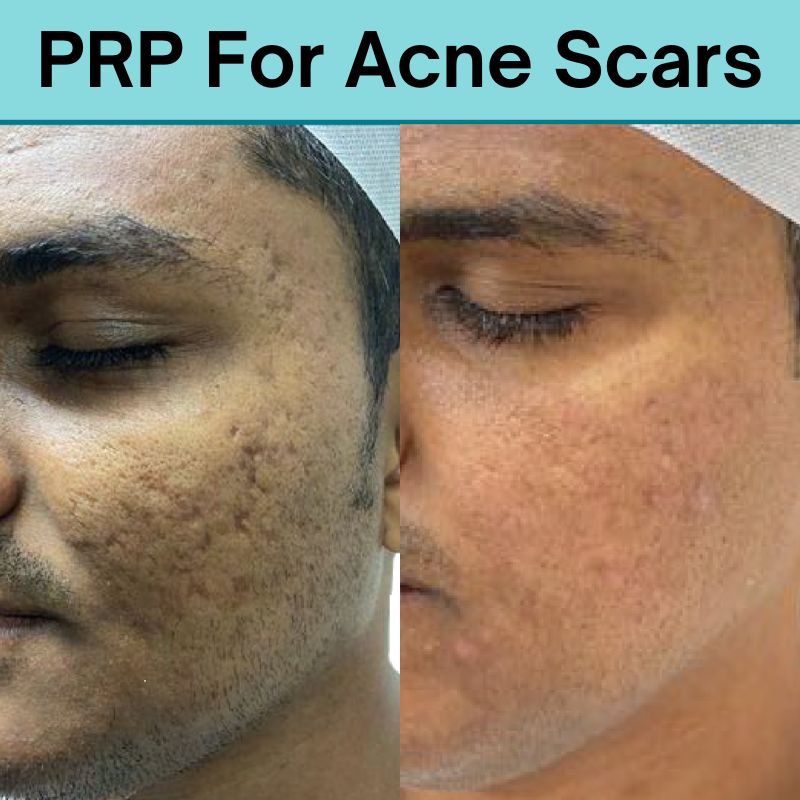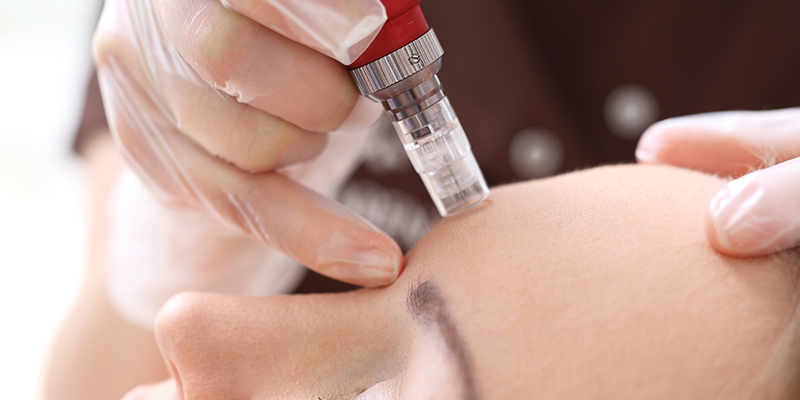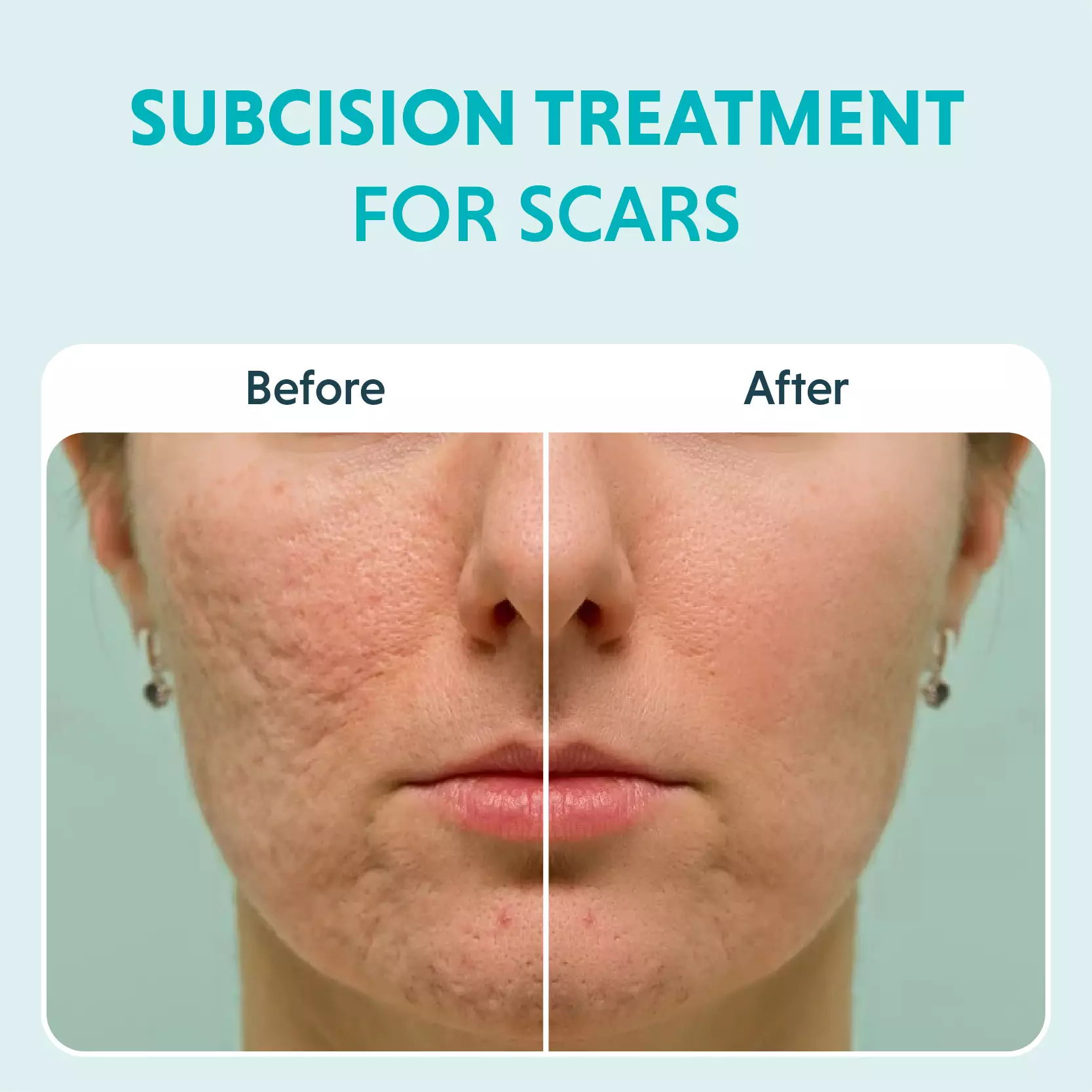Table Of Content
Top 10 Home Remedies for Acne Scars: Natural Ways to Fade Scars at Home
Acne scars are marks left behind after acne heal, and they can make skin look uneven. While some mild scars fade over time, deeper scars are harder to treat. Many people try home remedies because they are easy, affordable, and seem safe. But the truth is, home remedies can only help to a small extent and may not work for stubborn scars. In this article, let’s explore what causes acne scars, simple home remedies you can try, lifestyle changes to prevent scars, and when it’s better to go for professional treatments.
Table Of Content
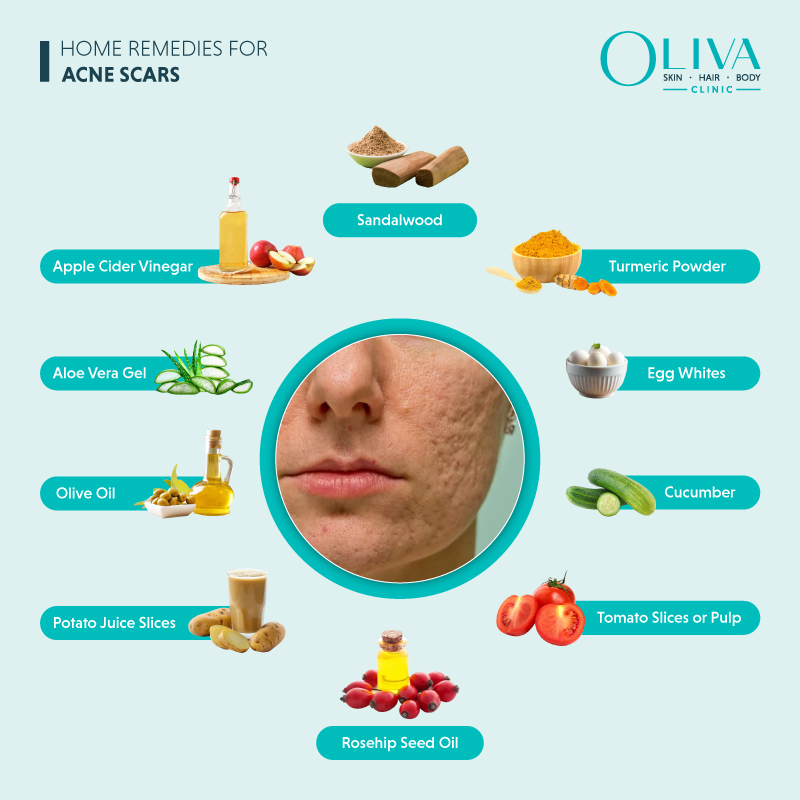
10 Effective Home Remedies to Reduce Acne Scars Naturally
-
Apple Cider Vinegar for Acne Scars
- What it is: Apple cider vinegar is an acidic liquid that works as a natural astringent. It aids in balancing skin pH levels and promoting skin cell turnover, which can help minimize acne scars.
- How to use: Dilute apple cider vinegar with water in a 1:3 ratio. Soak a cotton ball in the solution and apply it to the affected areas. Leave it on for 10-15 minutes, then rinse off.
- Frequency: Apply once a day for best results.
- Expert Tip: Start with a patch test to ensure your skin doesn’t react negatively. Overuse may cause dryness.
-
Turmeric Powder to Lighten Acne Scars
- What it is: Turmeric is a well-known anti-inflammatory and antioxidant powerhouse that can reduce scars and even out skin tone.
- How to use: Mix turmeric powder with honey or water to form a paste. Apply it to your scars and leave it on for 20 minutes. Rinse off with warm water.
- Frequency: Use 2-3 times a week for maximum effect.
- Expert Tip: Be careful with turmeric as it can stain your clothes or skin. Use an old towel or pillowcase.
-
Nutmeg (Jaiphal) for Fading Acne Marks
- What it is: Nutmeg is a natural anti-inflammatory with exfoliating properties, perfect for reducing acne scars and promoting new skin growth.
- How to use: Mix powdered nutmeg with honey or milk to form a paste. Apply it to the scars, and leave it on for 20 minutes before washing off with lukewarm water.
- Frequency: Use 2-3 times a week for best results.
- Expert Tip: Nutmeg can be a bit harsh on sensitive skin, so do a patch test before applying it to larger areas.
-
Aloe Vera Gel for Healing Acne Scars
- What it is: Aloe vera is known for its soothing and moisturizing properties. It promotes skin regeneration and helps reduce inflammation, making it ideal for acne scars.
- How to use: Apply fresh aloe vera gel directly to your scars and leave it overnight. Rinse off in the morning.
- Frequency: Apply daily for best results.
- Expert Tip: For best results, use fresh aloe vera gel straight from the plant, as it contains more nutrients than store-bought options.
-
Rosehip Seed Oil for Reduce Scarring
- What it is: Rich in essential fatty acids and vitamins, rosehip seed oil supports skin regeneration and reduces scarring over time.
- How to use: Apply a few drops of rosehip seed oil directly to the scarred areas. Massage gently until fully absorbed.
- Frequency: Use once or twice daily, preferably in the evening.
- Expert Tip: Rosehip oil can be combined with other oils like jojoba oil to enhance its effects and provide deeper hydration.
-
Olive Oil to Improve Skin Texture
- What it is: Olive oil is packed with antioxidants and vitamins that help speed up the healing process, reducing the appearance of scars.
- How to use: Massage a few drops of extra virgin olive oil into the scarred area for a few minutes, then leave it on overnight.
- Frequency: Apply daily for best results.
- Expert Tip: Be sure to use extra virgin olive oil for the most potent benefits.
-
Sandalwood Paste to Calm and Heal Acne Scars
- What it is: Sandalwood has anti-inflammatory properties that help calm the skin, reduce redness, and promote skin healing, making it an excellent remedy for acne scars.
- How to use: Mix sandalwood powder with rose water to form a paste. Apply it to your scars and let it dry. Rinse off once dry.
- Frequency: Use 2-3 times a week for optimal results.
- Expert Tip: Sandalwood is cooling, so it works well on sensitive or inflamed skin.
-
Tomato Pulp for Brightening Acne Marks
- What it is: Tomatoes are rich in lycopene and vitamins A and C, which help heal and brighten skin while reducing the appearance of dark scars.
- How to use: Place fresh tomato slices or apply tomato pulp directly on the scars. Leave it on for 20 minutes, then rinse.
- Frequency: Apply daily for best results.
- Expert Tip: Fresh tomatoes are ideal, but tomato paste can be used in a pinch for a more concentrated effect.
-
Baking Soda as a Natural Exfoliant
- What it is: Baking soda acts as a natural exfoliant, helping to remove dead skin cells and promote the growth of new, healthy skin cells.
- How to use: Mix baking soda with water to form a paste. Apply it gently on the scars and leave it on for a few minutes before rinsing off.
- Frequency: Use once a week to avoid over-exfoliating the skin.
- Expert Tip: Be cautious if you have sensitive skin; overuse can lead to irritation.
-
Cucumber for Soothing and Lightening Scars
- What it is: Cucumber is a natural hydrator that soothes and cools the skin, reducing inflammation and helping to fade scars over time.
- How to use: Place fresh cucumber slices on your scars or apply cucumber juice. Leave it on for 20 minutes before rinsing off.
- Frequency: Use daily to keep the skin hydrated and reduce scars.
- Expert Tip: Cucumber also works great as an eye mask to reduce puffiness and irritation.
Are Home Remedies Enough to Remove Acne Scars?
Home remedies and natural treatments might offer minor improvements for acne scars, but if you’re struggling with deep or stubborn scars, professional dermatological treatments are often the safest and most effective option.
If you’re looking for effective acne scar treatments Oliva Clinic offers advanced solutions backed by experienced dermatologists. At Oliva Clinic, our expert dermatologists use advanced, FDA-approved treatments like laser resurfacing, chemical peels, microneedling with RF, and subcision to target different types of acne scars — including ice pick, rolling, and boxcar scars. These customized treatments help improve skin texture and give long-lasting results that home remedies simply cannot match.
Why Choose Oliva Clinic for Acne Scar Treatment?
- FDA-Approved Technology: Our treatments are powered by the latest FDA-approved technologies, ensuring safe and effective results.
- Personalized Treatment Plans: We understand that every skin type and concern is unique. Our dermatologists tailor a treatment plan specifically designed for your skin’s needs.
- Experienced Dermatologists: With collective years of expertise, our dermatologists, are specialists in acne scar treatment, ensuring you receive top-notch care.
- Holistic Approach: We focus on treating the root cause of your acne and scars, offering solutions that promote long-term skin health, not just temporary fixes.
Best Dermatologist & FDA Approved Treatments for Acne Scars
- Laser Treatments: Advanced lasers skin resurfacing can effectively reduce the appearance of acne scars by stimulating collagen production and resurfacing the skin.
- Chemical Peels: Our chemical peel treatments exfoliate dead skin cells, reduce pigmentation, and promote fresh skin growth, helping to improve the appearance of scars.
- PRP (Platelet-Rich Plasma) Therapy: PRP uses your body’s own platelets to stimulate healing and collagen regeneration, which helps in fading scars and improving skin texture.
- Microneedling (MNRF): MNRF treatment promotes collagen production and skin renewal, providing a smoother texture and reducing the depth of scars.
If you’re not sure which treatment is right for your skin, our dermatologists offer consultations to help you decide the best approach based on your skin type and scar severity.
Frequently Asked Questions
Acne scars can be reduced naturally with ingredients like aloe vera, honey, and lemon juice, which help soothe and lighten scars over time. Regular exfoliation with natural scrubs like oatmeal or gram flour (besan) can also improve skin texture. However, for deeper scars, dermatologist-approved treatments like chemical peels, microneedling, or laser therapy offer more effective and lasting results. If you’re looking for professional acne scar treatments in your location, consult a certified dermatologist near you.
Coconut oil contains antioxidants and fatty acids that may help moisturize the skin, but it is not the best option for healing acne scars. In fact, for oily or acne-prone skin, coconut oil can clog pores and trigger breakouts. If you’re looking for effective scar reduction, treatments like chemical peels, laser therapy, or microneedling can provide visible improvement.
Some of the best home remedies for acne scars include:
- Aloe Vera Gel – Helps soothe and lighten scars.
- Lemon Juice – Contains vitamin C for brightening (use with caution on sensitive skin).
- Honey & Turmeric – Natural antibacterial and anti-inflammatory properties.
- Rosehip Oil – Known for its skin-regenerating benefits.
While these remedies may help with mild scars, deeper acne scars require advanced treatments like laser skin resurfacing, chemical peels or microneedling. If you’re looking for professional solutions Visit Oliva Skin, Hair & Body Clinic for personalized treatment plans based on skin type and severity of your scars.
Mild acne scars may fade over time, but deep or pitted scars like ice-pick or boxcar scars usually do not go away without treatment. Advanced dermatological procedures such as laser resurfacing, microneedling, chemical peels and subcision can significantly reduce scars. If you’re seeking for expert care, visit Oliva Skin, Hair & Body Clinic for tailored acne scar treatments.
The fastest way to fade acne scars is through professional dermatology treatments such as Laser skin resurfacing, Microneedling, Subcision, and Chemical peels. These treatments stimulate collagen production and improve skin texture efficiently. If you’re looking for quick and visible acne scar solutions consult our dermatologist at your nearest Oliva Skin & Hair Clinic.
Aloe vera can help lighten and soothe mild acne scars, but it cannot completely remove deep or old scars. For permanent acne scar reduction, treatments like laser resurfacing, microneedling, or subcision are more effective.
Natural remedies like aloe vera, honey, and lemon juice can take several months to show slight improvement in mild scars. However, for faster and more noticeable results, dermatologist-recommended treatments such as laser therapy or microneedling are highly effective.
Yes, laser treatments like Fractional CO2, Erbium, and Pico lasers are among the most effective options for treating acne scars. They help by resurfacing the skin and boosting collagen to improve skin texture and reduce scarring.
Microneedling is an effective and popular treatment for acne scars. It works by creating micro-injuries that trigger collagen production and help smooth out scarred skin.
Yes, acne scars can be prevented by treating acne early, avoiding picking or squeezing pimples, and using dermatologist-recommended skincare. If you’re prone to scarring, seeking early treatment from a dermatologist can help prevent long-term damage and scars.
Home remedies like lemon juice or turmeric may cause skin irritation, redness, or allergies, especially for sensitive skin. It’s important to consult a dermatologist before trying home remedies, especially for severe scars. If you want safe and effective acne scar treatments in your location, reach out to a trusted skin clinic for expert guidance.




